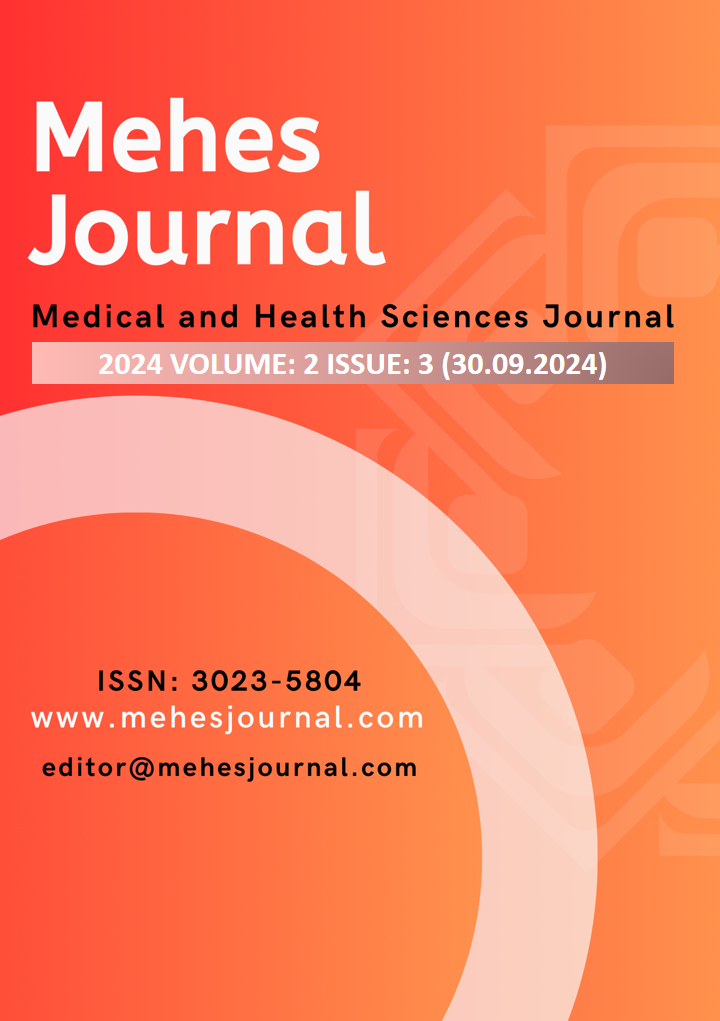Ashwagandha’s Biological and Pharmacological Effects: An Overview of Experimental Animal Research
DOI:
https://doi.org/10.5281/zenodo.13862902Keywords:
Ashwagandha, Withania Somnifera, Experimental Animal Studies, AntioxidantAbstract
Ashwagandha (Withania Somnifera) is an important plant that has been used for many years in Ayurveda, traditional Indian medicine. Ashwagandha; Thanks to its adaptogen properties, it helps to balance the body by increasing its ability to cope with stress. Scientific research in recent years has supported the positive effects of Ashwagandha on health and examined its pharmacological properties on various biological systems. Ashwagandha's antioxidant, anti-inflammatory, neuroprotective, anti-stress and anxiety-reducing effects have been studied in experimental animal studies. The ability of the plant to reduce oxidative stress and inflammation markers by neutralising free radicals are prominent findings. In addition, protective effects against neurodegenerative diseases such as Alzheimer's and Parkinson's and the potential to reduce stress-related cortisol levels have been observed. The positive effects of Ashwagandha on metabolic and cardiovascular health indicate improvement in blood glucose and cardiac parameters. In this review, the pharmacological effects of Ashwagandha on experimental animals are discussed in detail, summarising the findings confirming the various effects of Ashwagandha on health and presenting promising results for clinical applications. The use of Ashwagandha in experimental animal models shows that it provides positive effects on stress and anxiety with its antioxidant, anti-inflammatory and neuroprotective properties. However, more clinical studies are needed to confirm these effects in humans.
References
Speers AB, Cabey KA, Soumyanath A, Wright KM. Effects of Withania somnifera (Ashwagandha) on stress and the stress-related neuropsychiatric disorders anxiety, depression, and insomnia. Curr Neuropharmacol. 2021;19(9):1468-95.
Mikulska P, Malinowska M, Ignacyk M, Szustowski P, Nowak J, Pesta K, et al. Ashwagandha (Withania somnifera)-Current Research on the Health-Promoting Activities: A Narrative Review. Pharmaceutics. 2023 Mar 24;15(4):1057.
Nile SH, Liang Y, Wang Z, Zheng J, Sun C, Nile A, et al. Hemical composition, cytotoxic, and pro-inflammatory enzyme inhibitory properties of Withania somnifera (L.) Dunal root extracts. South African J Bot. 2022;151:46-53.
D'Cruz M, Andrade C. Ashwagandha (Withania somnifera) tıp ve nöropsikiyatrideki potansiyel klinik uygulamaları. Clin Pharmacology Expert Review. 2022;15(9):1067-80.
Saleem S, Muhammad G, Hussain MA, Altaf M, Bukhari SNA. Withania somnifera L.: Insights into the phytochemical profile, therapeutic potential, clinical trials, and future prospective. Iran J Basic Med Sci. 2020;23(12):1501-26.
Logie E, VandenBerghe W. Tackling chronic inflammation with withanolide phytochemicals—A withaferin A perspective. Antioxidants. 2020;9:1107.
Sandhir R, Sood A. Neuroprotective Potential of Withania somnifera (Ashwagandha) in Neurological Conditions. In: Kaul, S., Wadhwa, R. (eds) Science of Ashwagandha: Preventive and Therapeutic Potentials. Springer; 2017.
Fry CH, Fluck D, Han TS. Adrenal hypofunction associated with ashwagandha (Withania somnifera) supplementation: a case report. Toxicol Environ Health Sci. 2022;14:141-5.
Krishna Raju AV, Somepalli V, Thanawala S, Shah R. Efficacy and Anti-Inflammatory Activity of Ashwagandha Sustained-Release Formulation on Depression and Anxiety Induced by Chronic Unpredictable Stress: in vivo and in vitro Studies. Exp Pharmacol J. 2023;15:291-305.
Nayak S, Nayak S, Panda BK, Das S. A Clınıcal Study On Management Of Stress In Type-2 Dıabetes Mellıtus (Madhumeha) Wıth Ashwagandha (Withanıa Somnifera) Ayushdhara. 2015;2(6):413-7.
Wiciński M, Fajkiel-Madajczyk A, Kurant Z, Liss S, Szyperski P, Szambelan M, et al. Ashwagandha's Multifaceted Effects on Human Health: Impact on Vascular Endothelium, Inflammation, Lipid Metabolism, and Cardiovascular Outcomes-A Review. Nutrients. 2024 Jul 31;16(15):2481.
Vedi R, Kumar R, Bansal N, Thakur MK, Sharma D. Amelioration of bromobenzene hepatotoxicity by Withania Somnifera pretreatment: Role of mitochondrial oxidative stress. Toxicol Rep. 2014;1:132-8.
Khan I, Bhalerao S, Rao P, Gawde S. Effect of Withania Somnifera (Ashwagandha) root extract on amelioration of oxidative stress and autoantibodies production in collagen-induced arthritic rats. J Complement Integr Med. 2015;12:20140075.
Konar A, Shah N, Singh R, Saxena N, Kaul SC, Wadhwa R, et al. Protective role of Ashwagandha leaf extract and its component withanone on scopolamine-induced changes in the brain and brain-derived cells. PLoS One. 2011;6(11):e27265.
Alzoubi KH, Khabour OF, Al-Sawaf HA, Ibrahim A, Agha AM. Withania Somnifera root powder protects against post-traumatic stress disorder-induced memory impairment. J Mol Neurosci. 2019;67(1):1-9.
Khalil A, Shahid M, Ali B, Shaukat A. Amelioration of isoproterenol-induced oxidative damage in rat myocardium by Withania Somnifera leaf extract. Oxid Med Cell Longev. 2015;2015:624159.
Downloads
Published
How to Cite
Issue
Section
License
Copyright (c) 2024 MEHES JOURNAL

This work is licensed under a Creative Commons Attribution 4.0 International License.










